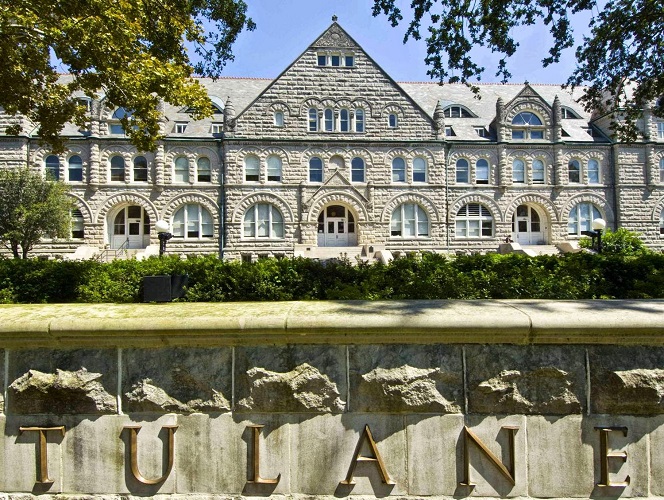By Ted Griggs
The Advocate, Baton Rouge, La.
WWR Article Summary (tl;dr) A new U.S. Patent and Trade Office program at Tulane and Southern University law schools will provide free legal help to budding entrepreneurs.
The Advocate, Baton Rouge, La.
One of the biggest obstacles for startups is protecting their intellectual property, or more accurately finding the money to hire an attorney to help them do that.
While some schools, like LSU or Tulane University, cover patent application costs for faculty and students, there is little in the way of free legal assistance for entrepreneurial members of the public.
But the law schools at Tulane University and Southern University plan to change that under a U.S. Patent and Trade Office program.
“We get questions all the time about, ‘Can you help me with my patent?’ But we couldn’t until we got certification,” said Elizabeth Townsend Gard, a Tulane Law School faculty member and co-director of the Tulane Center for IP, Media & Culture.
Townsend Gard said in each of the past three years, her intellectual property class has done about 100 trademark searches for people.
“We really recognize that there is a need in the city, that there aren’t a lot of places for people to turn to get pro bono patent and trademark help …. That’s why we wanted to do both,” she said.
Under the program, law students, under the supervision of an attorney, can file patent and trademark applications. The students get hands-on experience. The entrepreneurs get crucial help.
Michael Hecht, CEO of economic development group Greater New Orleans Inc., said clinics like Tulane’s are essential for would-be entrepreneurs for two reasons.
“The first is that when investors are looking to put money into a business, one of the most basic questions that they are going to ask is, ‘Is your intellectual property protected?’ ” he said. “And if they’re a savvy investor, they’re only going to invest if the IP is protected because that’s the bulk of the value of the business.”
The second reason is that the intellectual property rules can be somewhat obscure, Hecht said. So it’s important that the attorneys who practice in those areas avoid any mistakes that can undermine the viability and value of the startup.
Without patent protection, an entrepreneur who presents his or her product to a potential investor may not be able to patent that product, he said. An attorney might not necessarily know that unless he or she were taught in a clinic like the ones being started at Tulane and Southern.
Jimmy Roussel, CEO of the New Orleans Startup Fund, a nonprofit that invests in early-stage companies, said almost all of the good candidates the fund sees have intellectual property-related needs.
Patents are an issue in more than half the discussions, he said. Trademarks come along a little later, once the company has made some branding decisions.
“The bottom line is that we encourage young startups to try and develop a long-term, sustainable competitive advantage,” Roussel said. “Oftentimes, that advantage is in the form of patent protection.”
The fees for the applications aren’t terrible, Townsend Gard said.
Most startups qualify as “micro-entities,” or companies with no more than $169,548 in revenue, so they get a 75 percent discount on application fees.
For a provisional patent, which helps preserve the inventor’s patent rights, the application fee is only $65.
The filing fees for securing a patent can range from $700 to $1,000, and attorney’s costs can be 10 times that amount.
“My dream is to have alumni to create a pool that people can apply to for even assistance with the government fees, that they could come to us and it wouldn’t cost them anything if they qualify,” Townsend Gard said. “So that’s the next step for us, is raising money to do that.”
Townsend Gard said it’s important to file for that protection quickly because the United States moved from a first-to-invent patent system to first-to-file in 2013.
Tulane and Southern are among 25 law schools nationwide where students, under the supervision of an attorney, can file applications for patents and trademarks.
Twenty-nine other schools have been certified for either patent or trademark work. Altogether, more than 3,000 law students at the participating schools have filed applications for 653 patents and 2,480 trademarks.
Tulane plans to begin working with entrepreneurs in January. The school received its Patent Office certification too late to begin offering help during the fall semester.
Right now, Townsend Gard said she and her students are still filling in the details of how the program will work. They’re looking at everything from the students-to-client ratio and how to avoid being overwhelmed by demand to what the program will mean for Tulane and New Orleans.
Townsend Gard plans to start out with five to 12 students for patent law and 12 to 20 for trademarks.
Tulane already had civil and juvenile litigation clinics, as well as criminal, environmental and domestic violence law clinics before adding patent and trademark work.
“We think it’s super important. We’re really busy, but it’s worth the time,” Townsend Gard said. “And it will really benefit both our community and our students.”














































































































































































































































































































































































